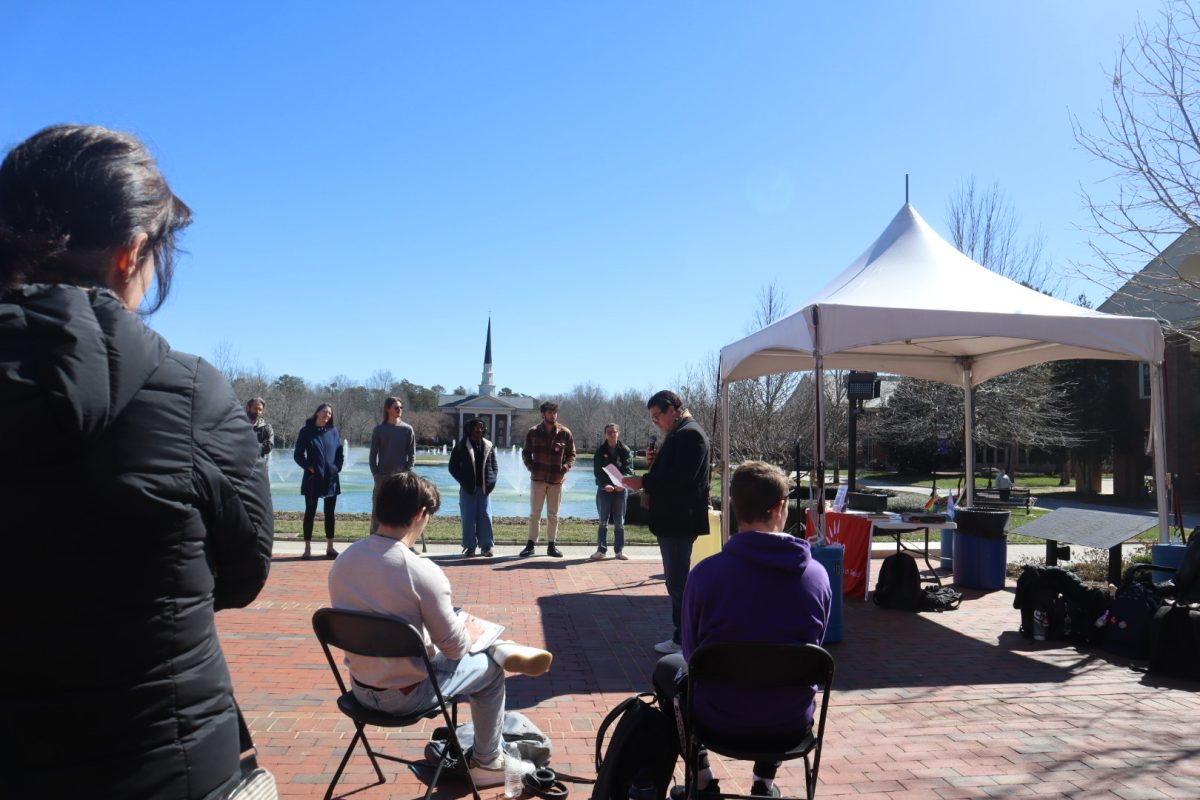It hit me one day when I least expected it. Finally having a moment of quiet, I realized I had lost all motivation for work. I was overwhelmed. In other words, I was burnt out. But what does that even mean, feeling burnt out? “Burnout occurs when chronic demands and stressors overburden us. We become physically, mentally, and emotionally exhausted” says Dr. Riley McCallus. When I approached Dr: McCallus in the psychology department with how I felt and how my friends all felt the same, we realized there might be something important to explore about undergraduate students’ feelings and experiences with burnout.
We set out to assess whether (and how many) other students reported feeling burnt out. We sought to discover the causes, trends, and coping strategies around burnout at Furman. After looking to past studies, we found few studies on burnout in undergraduate populations. While research on burnout in the workforce is valuable, we wanted to gain a better understanding of how the unique experiences of college may interact with stress and feelings of burnout. What better place to start than our own campus? We decided to invite Furman students to share their experiences via an anonymous survey.
The results from our sample (N=61) were similar to those seen in high-stress work environments, like the healthcare field. A staggering 80% of respondents reported that, during their time as Furman students, they had experienced burnout in the past and are currently experiencing burnout. Only 7% of respondents reported no current or past experiences of burnout during their time at Furman.

This suggests that many students are feeling burned out, and responses explained why. 94% of respondents reported being a member of a Furman University club, group, or organization (some were even in 6), not including external organizations students may be involved with. When asked to identify perceived causes of burnout, more than half of respondents cited academic pressure (with a whopping 95%), time management challenges, and personal factors as top contributors. Open-ended responses mentioned that overwhelming criticism plays a part too. These results are in line with research suggesting that the causes of our burnout aren’t restricted to each individual, but that systemic factors play a role as well.

Furman is known for being competitive, and people in their responses told us how it is taking a toll. Common themes that came up in open response to the question are expectations from departments beyond class, lots of comparison between students, rising costs of attending college, lack of understanding among professors, overlapping assignments (which everyone can relate to in my opinion). If these things sound like they are making sense to you, YOU ARE NOT ALONE! Furman encourages competition and is known for academic rigor, and although that isn’t always a bad thing, it seems clear that there are many people who feel it has become too much.
The good news is that yes, there are ways to cope with burnout. In fact, we asked students how THEY cope with burnout.

Beyond the above strategies, people discussed how reorganization and indulging in what makes them happy helps. It is important to keep in mind that things don’t work the same for everyone. However, the take home message we want readers to get is that it’s ok to give yourself grace. There are people who are proud of the work you have done, and nobody, even Furman (despite how it may feel), expects you to do it all! We encourage Furman to explore more resources for mental health and for students to make the most of the resources here.
Dr. McCallus and I would like to thank everyone who took the survey. We appreciate your vulnerability and honesty and hope to use these results to promote a better Furman for everyone.



































